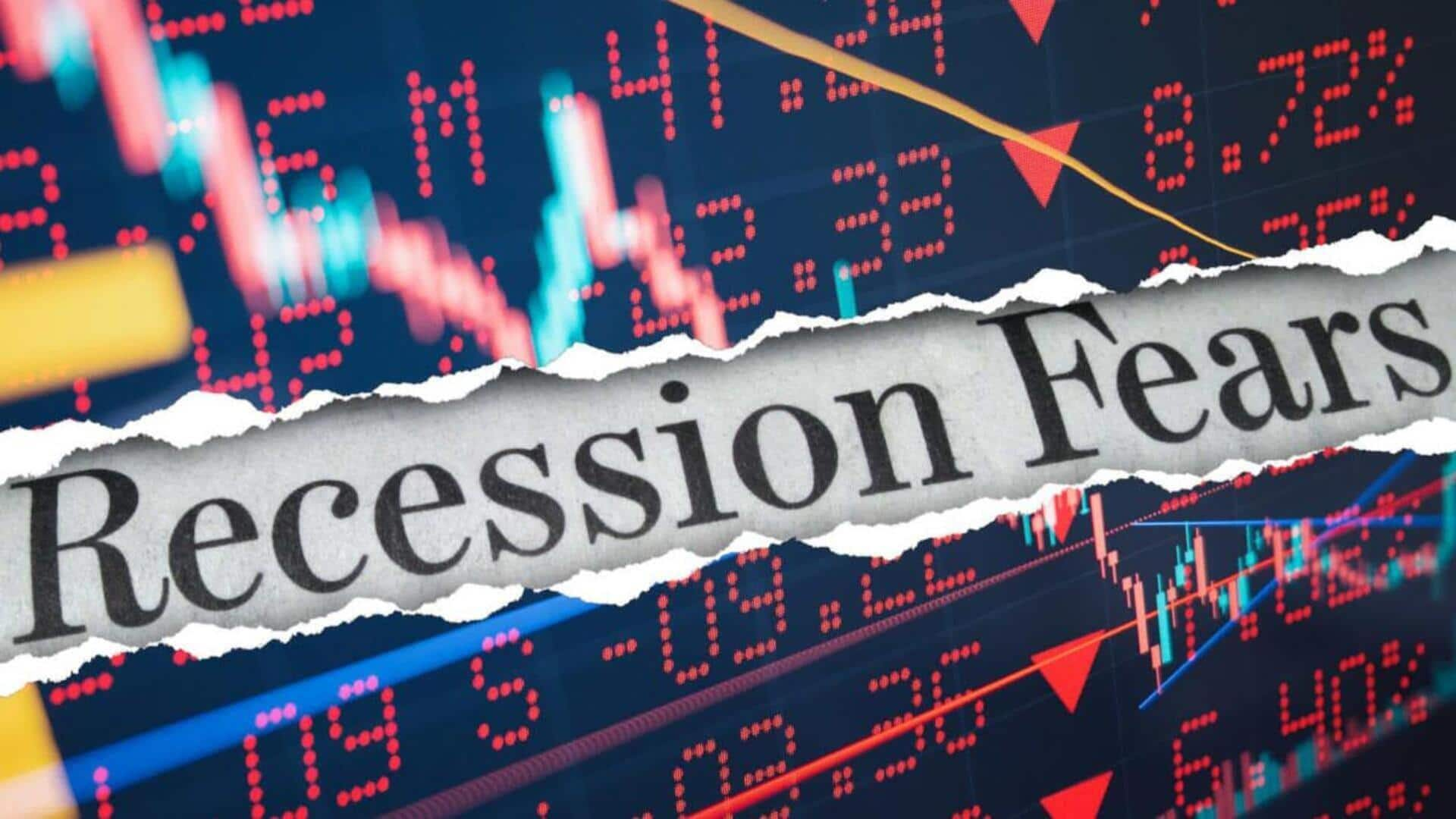
Global recession in 2025? Rising inflation, geopolitics fuel economic uncertainty
What's the story
As 2025 nears, worries of a possible global recession are growing louder. This is because a few major economies are showing evident signs of stress. A recession is characterized by two consecutive quarters of gross domestic product (GDP) contraction, which reflects a major decline in economic activity. Germany, Europe's largest economy, is under significant strain from soaring energy costs, while geopolitical tensions and potential trade disruptions involving the US and China have further fueled concerns of a global recession.
Economic stagnation
UK and Japan's economies face recession threat
The UK is on the brink of a recession, with revised GDP figures showing zero growth in Q3 2024, indicating economic stagnation. Japan, the world's third-largest economy, unexpectedly slipped into a recession earlier this year amid weak domestic demand. Average household debt in Japan increased to ¥6.55 million in 2023, exceeding average incomes and compelling many households to turn to high-interest loans.
Recession impact
New Zealand's economy contracts, marking weakest performance since 1991
New Zealand has also slipped into a recession, with its GDP contracting by 1% in the July-September quarter. This comes after a revised 1.1% contraction in April-June. According to Kiwibank Economics, this six-month contraction marks New Zealand's worst economic performance since 1991, barring the COVID-19 pandemic period.
Economic resilience
US economy remains resilient amid global recession fears
Unlike these struggling economies, the US economy has been resilient. Goldman Sachs recently lowered the chances of a US recession in the next 12 months to 15%, from an earlier prediction of 20%. This was on the back of a strong job market. "There's no sign of a recession. If markets and the economy are doing well, you might get some stress in pricing, leading to inflation," said Bhaskar Laxminarayan of Julius Baer.
Dollar dominance
Strong US dollar creates challenges for Asian economies
The strength of the US dollar, driven by capital inflows from emerging markets, has created major challenges for countries in Asia, barring Japan, as per Rajeev Agrawal of Doordarshi India Fund. Adding to the uncertainty is Sudip Bandopadhyay of Inditrade Capital who expects market volatility as President-elect Donald Trump intends to introduce a new tariff regime after his inauguration in January 2025.
Global risks
Geopolitical tensions and political stalemates contribute to economic instability
Geopolitical tensions remain a major risk. The ongoing wars in Ukraine and the Middle East, along with political gridlock in major European economies such as Germany and France, add to the economic instability. Bank Julius Baer's Mark Matthews noted that predicting recessions is inherently difficult due to the complexity of economic systems. "Recessions are impossible to predict. Economists who forecast them are just lucky, that's all," he said.